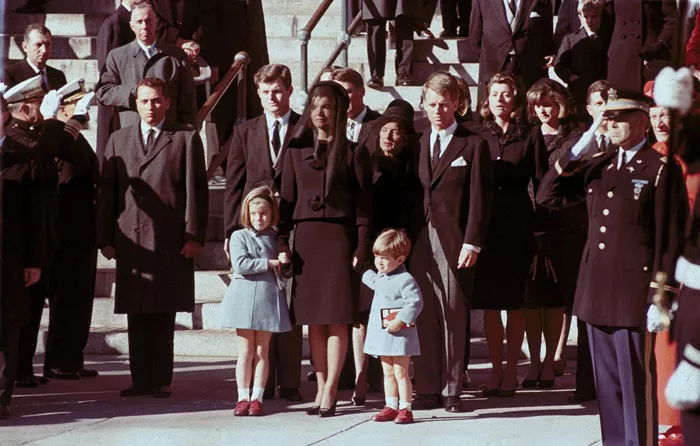June 6th holds a significant place in American history, marked by a tapestry of events that have shaped the nation’s trajectory and collective memory. From pivotal military engagements to political milestones and cultural touchstones, this date serves as a focal point for reflecting on the complexities and evolution of the American experience. In this comprehensive exploration, we delve into the multifaceted history of June 6th in America, examining its diverse array of events and their enduring impact.
D-Day: The Normandy Invasion (1944)
June 6, 1944, stands as one of the most consequential days in American military history, as well as in the broader Allied effort during World War II. On this day, Operation Overlord, better known as D-Day, commenced with the Allied invasion of Normandy, France. Led by General Dwight D. Eisenhower, American, British, Canadian, and other Allied forces launched a massive amphibious assault on the heavily fortified beaches of Normandy.
The success of the Normandy invasion was vital in turning the tide of the war against Nazi Germany. American troops, alongside their Allied counterparts, faced fierce resistance from German forces but ultimately secured a crucial foothold in Western Europe. The sacrifices made by the brave soldiers who stormed the beaches of Omaha, Utah, and other landing zones underscored the unwavering commitment to freedom and democracy that defined the American spirit during this pivotal moment in history.
See also: What Happened on June 6 in History?
Robert F. Kennedy’s Assassination (1968)
June 6, 1968, marked a tragic chapter in American political history with the assassination of Senator Robert F. Kennedy, just moments after winning the California Democratic presidential primary. Kennedy, a charismatic and progressive leader, was gunned down at the Ambassador Hotel in Los Angeles by Sirhan Sirhan, a Palestinian immigrant. The shocking event sent shockwaves across the nation, coming just five years after the assassination of President John F. Kennedy, Robert’s older brother.
Robert F. Kennedy’s untimely death deprived the nation of a promising leader who advocated for civil rights, social justice, and an end to the Vietnam War. His assassination cast a shadow over the turbulent political landscape of the late 1960s, further deepening divisions and sparking soul-searching about the direction of the country.
Tiananmen Square Protests (1989) and the American Response
While not an event that occurred on American soil, the Tiananmen Square protests of 1989 had a profound impact on American consciousness and foreign policy. On June 6th of that year, the Chinese government launched a brutal crackdown on pro-democracy demonstrators in Beijing’s Tiananmen Square, resulting in hundreds, if not thousands, of deaths.
The images of students facing down Chinese tanks and the subsequent violent repression shocked the world, prompting condemnation from Western nations, including the United States. President George H.W. Bush and other American leaders expressed solidarity with the protesters and called for a peaceful resolution to the crisis. The events at Tiananmen Square served as a stark reminder of the struggle for human rights and democracy, resonating deeply with Americans and influencing U.S.-China relations in the years to come.
The Assassination of Edward Kennedy (1968)
On June 6, 1968, less than two months after the assassination of his brother Robert, Senator Edward Kennedy survived an assassination attempt in Los Angeles. Kennedy, who was campaigning for the Democratic presidential nomination, was shot by Sirhan Sirhan, the same assailant who had killed Robert Kennedy.
While Edward Kennedy survived the attack, it further underscored the volatility of the political climate during that era and the Kennedy family’s tragic legacy of violence and loss. The assassination attempt had lasting repercussions on Edward Kennedy’s political career and left a profound impact on American society, contributing to ongoing debates about gun violence and political extremism.
The Birth of American Icon Walt Whitman (1819)
While not as widely recognized as some of the aforementioned events, June 6, 1819, marked the birth of one of America’s most celebrated literary figures, Walt Whitman. Born in West Hills, Long Island, Whitman would go on to become a towering figure in American literature, renowned for his groundbreaking poetry collection, “Leaves of Grass.”
Whitman’s works celebrated the beauty of the American landscape, the diversity of its people, and the democratic ideals upon which the nation was founded. His bold exploration of themes such as love, death, and spirituality revolutionized American poetry and left an indelible mark on the nation’s cultural landscape.
Conclusion
June 6th serves as a microcosm of American history, encapsulating the triumphs, tragedies, and complexities of the nation’s journey. From the heroic sacrifices of D-Day to the political turbulence of the 1960s and the cultural contributions of literary luminaries like Walt Whitman, this date reminds us of the rich tapestry of experiences that have shaped the American story. As we reflect on the events of June 6th, let us honor the resilience, courage, and spirit of innovation that continue to define the American identity.

